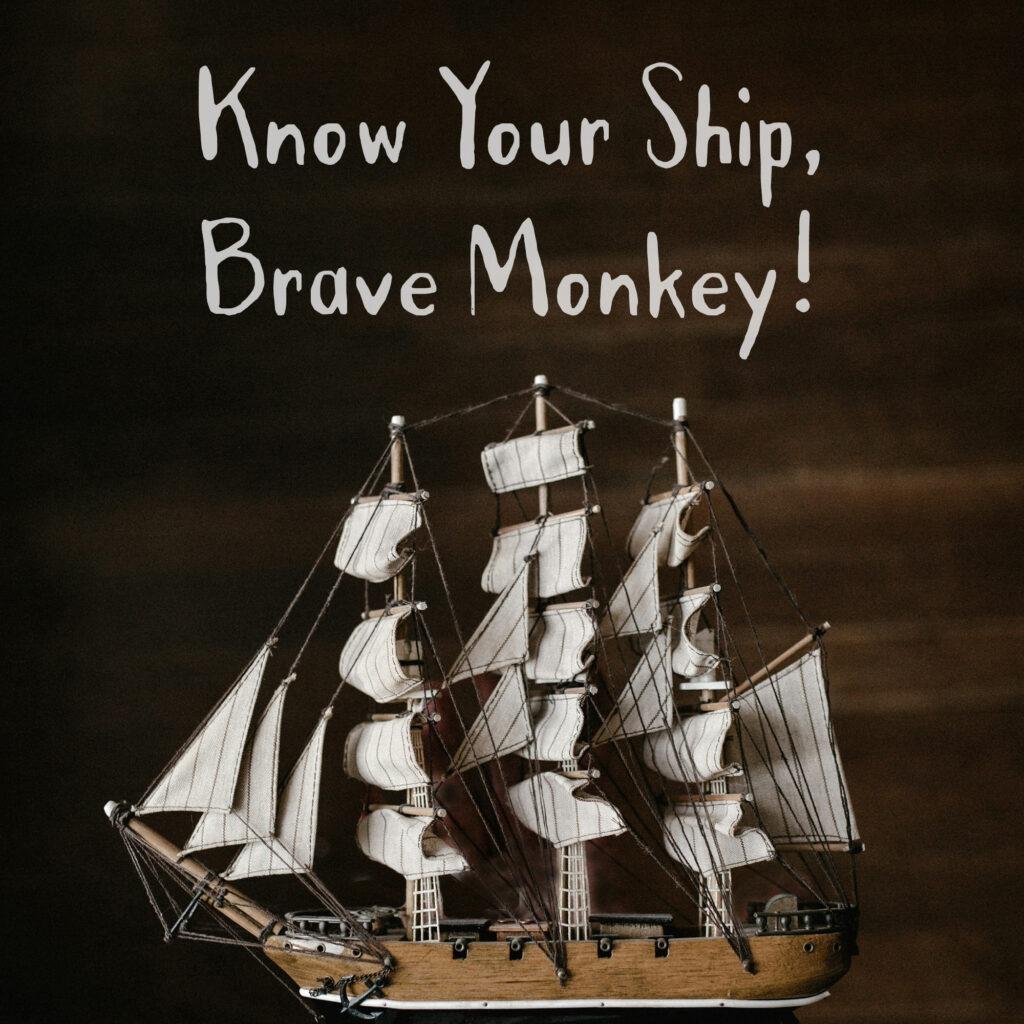As any monkey will tell you, knowing a canoe is not very difficult. There’s the front, of course. And if there is a front then it goes without saying that there must be a back and a middle. There is a place to sit, and a paddle to hold, but beyond that there’s really not much to know.
Sailing, however, is considerably more tricky. The monkeys of Towerwood knew more about sailing than anyone else, and that was mostly because of Chippy and his incredible inventions. Though sails had been invented hundreds of years before, they were really just bedsheets on broomsticks until young Chippington’s sailing boat inventions began to fill the enormous lake surrounding his village.
The monkeys of Seaward Bluff, as you may have learned, knew almost nothing of sailing, despite having the most enormous ship in their known world sitting in the treetops down by the cove. It had been built after looking at pictures from ancient “people” inscriptions, but the monkeys had very little idea of how it might work, or of what the different parts of it might be called.
This might not seem like a big problem when your ship is up in the trees. And truthfully, it isn’t. All you really need to know in that case is where the kitchen is when you come for a visit, and where the ladder is when it’s time to leave.
When you’re out on the open Ocean though, it’s a whole different story. If you don’t know your ship words, brave monkey, you will most certainly be in for a lot of trouble.
Early in “The Great Voyage”, as it came to be known, Captain Barbod’s crew had daily classes on the parts of a ship. There was Starboard, for the right side of the boat, and Port for the left. Bow was for the front of the ship, and Stern for the back.
“Why can’t we just say Right or Left?” One monkey asked during training. A few days later the answer was made abundantly clear.
“Rocks to the left!” One sailor shouted. “Right up ahead!”
“Did you say right or left?!” Barbod called, trying to hear through the noise of the wind.
“Yes!” Came the reply. “Both! But left is right…right up ahead, but to the left! Right isn’t right, if that’s what you heard, captain. Left is right!! … LOOK OUT!!!”
After that frightening day, everyone got to seriously studying their ship words.
There were a few name changes made from the original People words. ‘Crow’s Nest‘ became ‘Tully Nest’, because no one had ever met a crow, and if something had to be called a nest, what better bird than Tully? And Baggywrinkle got changed to Rope Socks because … well … it just sounded far less silly.
There was the Rigging, which meant all the ropes and chains that worked the sails, and the Rudder, down in the water, which steered the ship. There was the Mizzen Mast and Scuppers, Booms and Bilge and Transom Beams. It was a lot to learn, but it was all very important. Though the names sometimes sounded silly, when orders were shouted, everyone knew what they meant. Unless, of course, Barbod made up a whole new word, which he did at times just for a joke.
“Supsquaggle the Scuppillydoodle? Why, certainly captain! Whatever you say!”


Leave a Reply